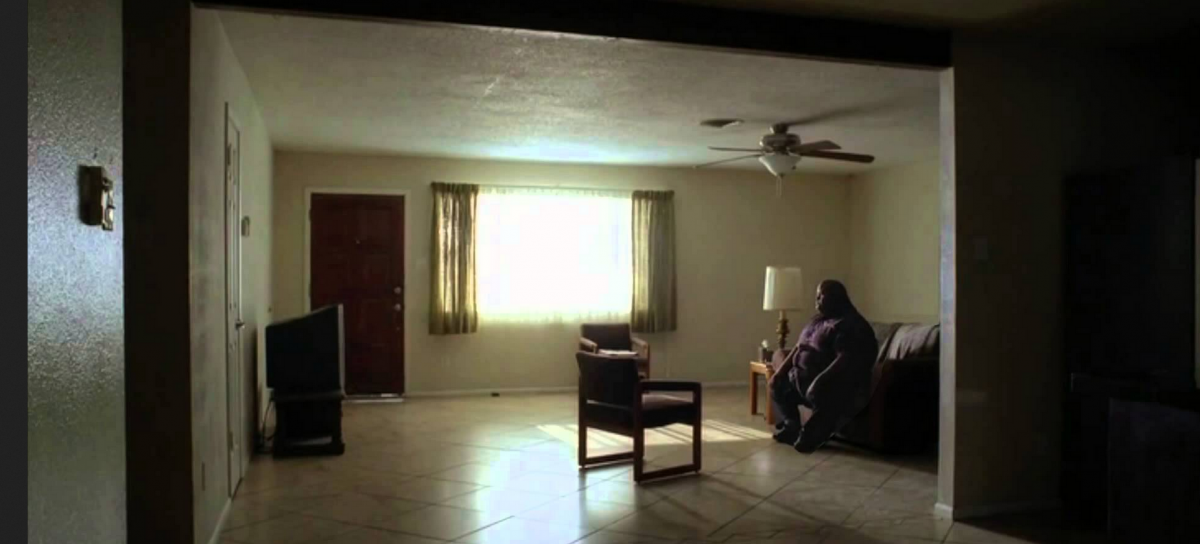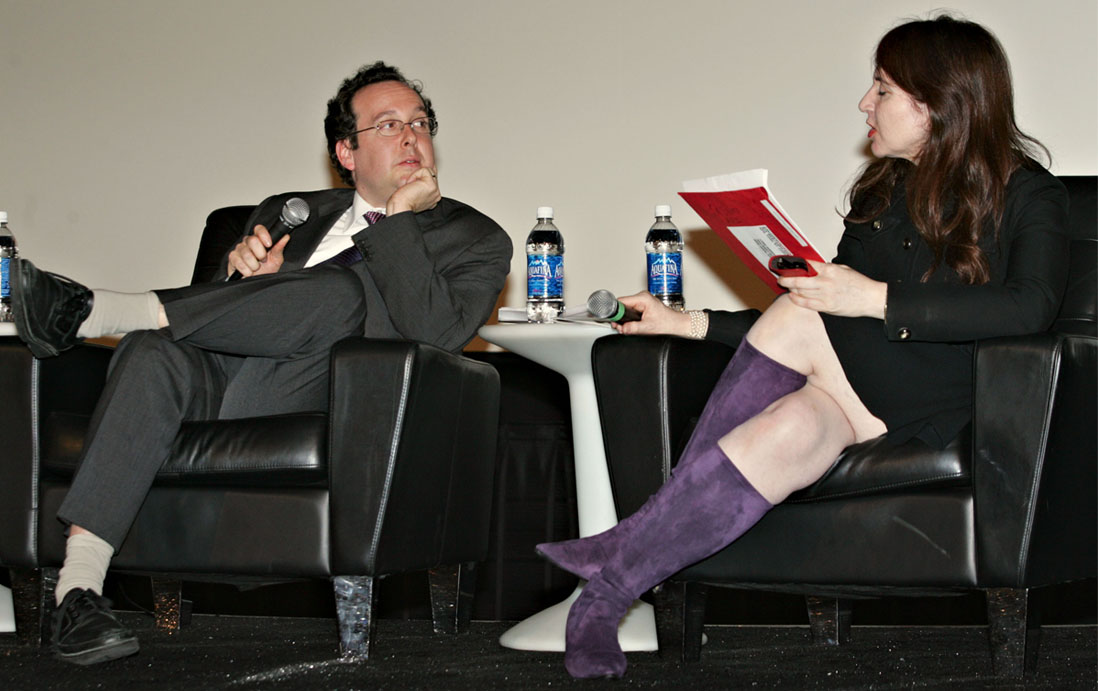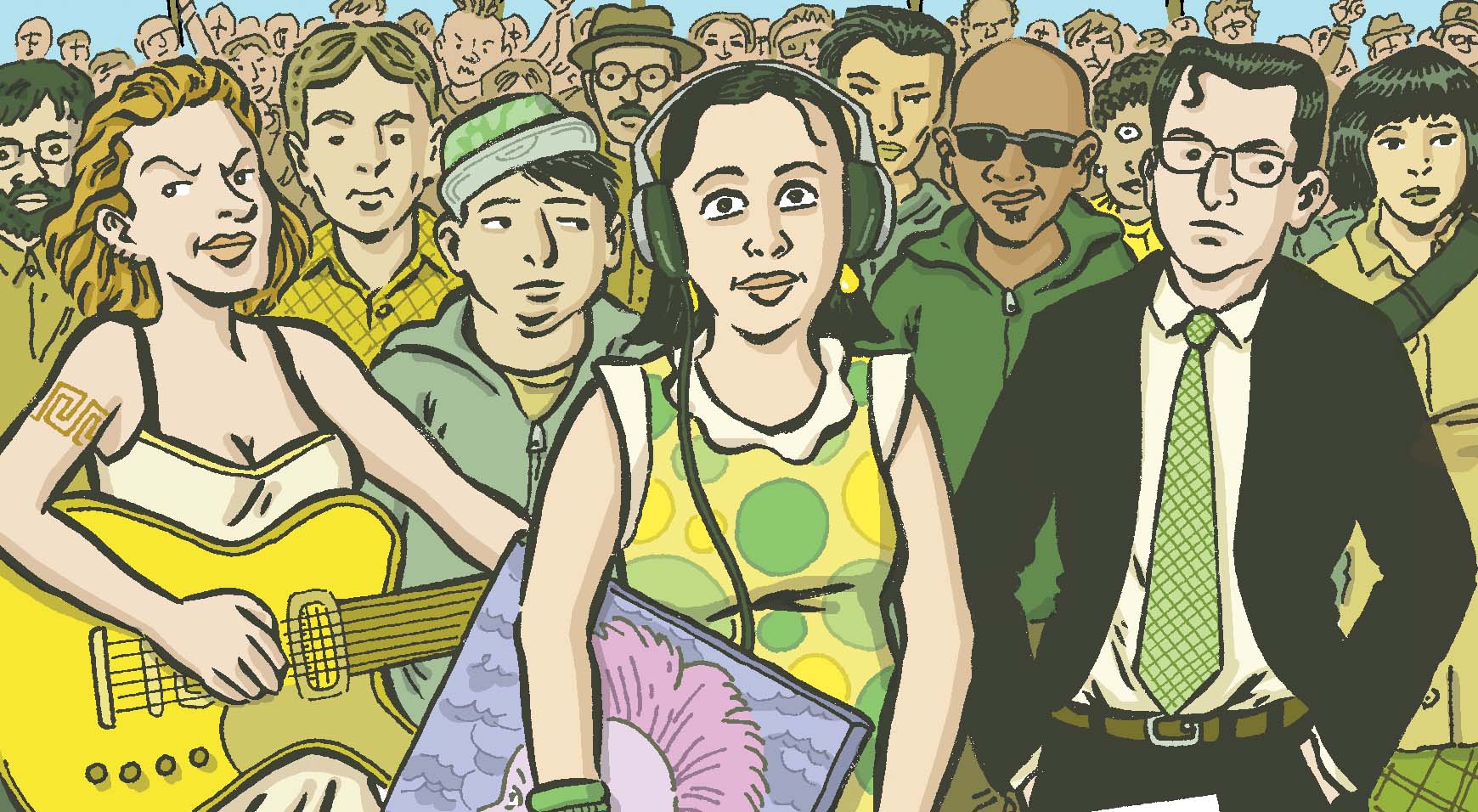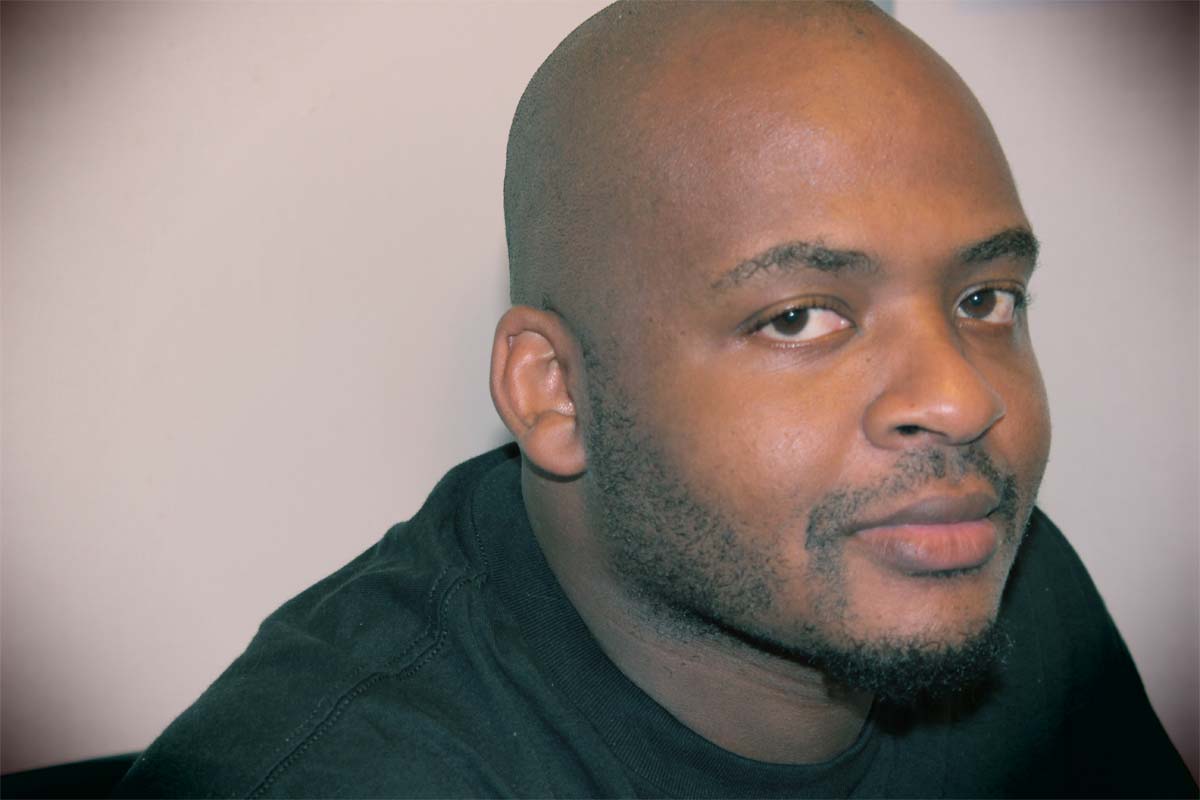Alissa Quart is most recently the author of Republic of Outsiders. This show is the second of two related programs devoted to the American epidemic of gravitating to mainstream culture in an age of limitless choice. (You can listen to the first part: Show #513 with Kiese Laymon.)
Listen: Play in new window | Download
Author: Alissa Quart
Subjects Discussed: George Lucas as “independent filmmaker,” how the presumed amateur mediums of YouTube and Kickstarter have become dominated by established figures, Amanda Palmer’s exploitation of musicians, Marina Abramović’s exploitation of dancers, Tilda Swinton marketing herself as an outsider, problems with the term “maverick,” the problems with Dave Eggers’s “selling out” rant, why resisting “selling out” has declined in the last ten years, Branded, OK Soda, how alternative cartoonists defied corporations, the decline in ad parodies, Yahoo cracking down on Tumblrs with sexual content, the flat self, how the lack of privacy destroys existential possibilities, the online exhibitionist impulse, Marie Calloway and easily deciphered pseudonyms, the relationship between the professional and the amateur, the rise of Etsy, T.J. Jackson Lear’s notion of antimodern dissent, people who strive to be featured sellers, false feminist fantasies, stealth capitalistic wish fulfillment, how physical space of hobbyists is appropriated by digital companies, handmade status, parallels between Etsy and freemium video games, addiction to Candy Crush Saga, Team Fortress 2, Netflix as an elaborate scheme to mine entertainment data, the narcotic state of false entertainment empowerment, vegans and fake meat, sanctimonious parallels between an animal rights activist telling you to watching a stream of slaughterhouse videos and a supermarket chain which claims that it slaughters animals humanely, crying over a field mouse dying, animal rights futurists, how prescriptive dichotomies develop into mainstream tropes, morally ostentatious ideological positions, The Icarus Project, the fine line between being eccentric and in need of help, bipolar writers, Mad Pride, a thought experiment concerning healthcare, whether or not it is the outsider’s to constantly resist, nontraditional settings for psychiatric care, Wikipedia’s transphobia against Chelsea Manning, transfeminists pointing to the assumption that the decision to have children is an assumption for all women, #solidarityisforwhitewomen, blind spots of mainstream feminists, gender distinctions at Barnard, young people and privacy*, Snapchat, how outsider ideas become mainstream, a Comics Alliance review of Heroes of Cosplay, cosplay as the professionalization of fans, the Tron Guy, how body image is becoming more Hollywood with professional cosplay, Vimeo auteurs, viral videos about broken subway steps, corporations that use images of people against their will, Beasts of the Southern Wild, Star Wars Uncut, contemporary collective filmmaking of today vs. truly independent filmmaking of the past (John Cassevetes, et al.), how tastemakers saved Kenneth Lonergan’s Margaret, the entitled fan critic vs. the designated gatekeeper, the decline of auteurism, mumblecore, documentary collectives in the 1960s, designated advocates vs. fan advocates, Kickstarter and behavioral economics, what a true outsider is, Sublime Frequencies’s Alan Bishop, the discipline of only being influenced by the sensibilities you cultivate, Pitchfork, taste as the last recourse in a world with too much information, how the word “curator” has been inverted, Maria Popova, the obligation to be outsider in some way, NPR Pop Culture Happy Hour, Lev Manovich’s idea of data streams, and the limited cultural scope of hyperniche groups on Twitter.
EXCERPT FROM SHOW:
Correspondent: When George Lucas made Star Wars Episodes I through III, he declared himself an “independent filmmaker.” Even though he was self-financing these movies for many millions of dollars. I also remember in 2011 when Zooey Deschanel and Joseph Gorden Levitt were singing “What Are You Doing New Year’s Eve?” and they released this to YouTube. They faced a great deal of criticism. YouTube is the amateur medium. Well, now we’re in a totally different ball game these days. Now we have crowdfunding. We have Spike Lee, Zach Braff, Veronica Mars on Kicktarter. And these people say, “Hey, it’s okay.” And what’s even more astonishing is that people are more accepting of this. And maybe, just to start off on what we’re dealing with here in terms of insiders and outsiders, why do you think that independent filmmaking has changed so that we now accept these people moving into the turf previously occupied by outsiders and people who were scrabbling together various resources to make different, eclectic art?
Quart: Well, I think right now we’re seeing coalitions of insiders and outsiders in a single person. So you have someone like Spike Lee, who is doing a Kickstarter campaign. He may have raised it by now. He was trying to raise $1.4 million. And then you have Amanda Palmer raising something similar on Kickstarter. Even more. And then you have actual true outsiders, or people who would have defined themselves as outsiders for many years, also using these same media. And it becomes, as I write in my book, a “republic of outsiders” — some which are arguably relying on their fans too much.
Correspondent: To the point of exploiting them, as Amanda Palmer is. “Hey, we’re going to have professional musicians play for free.” Which she’s received a lot of understandable flack for.
Quart: And I just saw recently Marina Abramović — the performance artist who had a big show at MOMA, quite famous. A dancer was complaining about being exploited for her labor in a crowdsourcing. Now there’s highbrow artists who are getting in on this kind of fan/star collapse and also monetizing the labor of people who are non-stars.
Correspondent: It’s interesting. Because I saw recently that Tilda Swinton went to Russia and is presenting herself as a total outsider. Of course, there’s her famous exhibit where she’s basically sleeping there. We’re now seeing a situation where mainstream people, or people who have dabbled between mainstream and outsider type of art, now feel this overwhelming need to define themselves as a rebel in some way. And yet they’re still reliant in many ways upon corporate cash or mainstream sources.
Quart: Or ordinary people’s cash.
Correspondent: Yes!
Quart: Or a friend’s cash.
Correspondent: And with crowdfunding. Yes.
Quart: Or a friend’s labor. And in a sense, the traditional selling out, where you’re relying on a corporation, can start to seem somewhat more innocent.
Correspondent: Well, why do you think that identifying yourself as an outsider is now a fundamental part of being? We can all sort of see through it. Especially when one tracks the general tenor or some artist’s voice. So why is this such a big thing these days?
Quart: Originally I was going to call this book either The Maverick Principle or Mavericks. And then there was the 2008 election. Sarah Palin and John McCain calling themselves “mavericks.”
Correspondent: “A real maverick.” Yes.
Quart: And then at some point Obama was even called “renegade.” So I think it’s really interesting. There’s a lot of use of language of the rebel/renegade. But part of what I did in this book was that I tried to include as many people who I considered — and I use this word advisedly — authentic outsiders, as well as people who are in this inside/outside thing like Amanda Palmer.
Correspondent: Sure. Well, one piece of writing you don’t actually include in the book, that I feel is actually germane to this argument, is Dave Eggers’s famous “selling out” speech, which he gave to The Harvard Advocate. And I still see it crop up all the time on Tumblr, where people constantly post it. And he basically says, okay, so the Flaming Lips appeared on 90210 and they performed their popular songs. But who cares? And he says, “Hey, I take money. Considerable thousands of dollars from Fortune Magazine. But I’m giving that away.” But what’s interesting about this, and what no one actually seems to think about in considering the Eggers rant, is that he’s not willing to hold himself accountable for how being indoctrinated in that kind of mainstream situation is going to affect his outsider nature or is actually going to compromise it in some way. And I’m wondering why this is such a compelling piece of text even almost fifteen years later, after it was originally disseminated. Why do you think people are still clinging to this notion of being an outsider or wanting to justify the fact that we’re all ensnared in this trap of having to…
Quart: As I said, the term “selling out,” which I considered an honorific when I was growing up. Or the opposite. Not selling out was honorific. Selling out was a terrible thing to do. I think the paradoxes of the term “selling out” have collapsed. And so you see people not even recognizing what that means. Now I’m going to start sounding like an old fuddy-duddy. But it’s not really a term that people really use or judge themselves by. It’s seen as a compliment. “Oh, I got Doritos to use my content that I created. Even though I’m just a fanboy.” Or “I got the latest hip-hop artist to use my remix in an advertisement. I’m so great.” So I think one of the reasons this document may hold appeal is that it’s a smart, well-heeled person kind of explaining what a lot of people are experiencing and addressing, if there is any, their lingering doubt. Is this a problem that I don’t even have this lodestone of selling out/not selling out anymore?
Correspondent: Why do you think that the notion of “selling out” became — when do you think the stigma was deflated? I mean, is this probably the last ten years, would you say?
Quart: I could feel it. I wrote a book. It came out in 2003.
Correspondent: You did.
Quart: Branded. And that to me was like — I didn’t even know it then, but I was seeing all these adolescents — I called it self-branding — who were defining themselves by the products they were consuming. Like “I am Coke. I am Pepsi. I am Abercrombie.” And I thought to myself, “Wow, this is just a teen thing.” But then the more I looked into it, these kids were growing up. And they were going to similarly retain that kind of identification. So I think a lot of it happened in the ’90s. It happened during the consolidation of corporations. It happened with the faltering economy. So people didn’t feel that they had the courage necessarily, even if they wanted to. To not define themselves by status markers. So I think there’s a multitude of factors that went into it.
Correspondent: You think people wanted to belong? And not really finding an absolute group, they turned to what corporations had to offer?
Quart: Yeah. I think it was just a surround sound culture. I mean, it is right now. We live in a screen culture where there’s endless pop-up ads, where our data is being mined. Where if I check out a jacket on a site, I’ll be seeing that jacket reappearing endlessly on my browser with every site I visit. In the early 2000s, when I wrote Branded, the line between advertorial and editorial in teen publications was collapsing. And that itself was a cause for dismay in media critic circles. And I wrote about it. “Oh no. They’re getting these advertising giveaways that are masquerading as magazines for teenagers.” Now everything they read carries promotional content. Magazines themselves are promotional entities. Again, the paradoxes of what selling out means have collapsed. And given the difficulties of the magazine and newspaper businesses right now, people don’t even focus on this that much. What content carries a commercial valence and which doesn’t.
Correspondent: But there was a time — like I think, for example, of OK Soda, where Coca-Cola hired Dan Clowes and Charles Burns to make this hip kind of design. I love this story. And they basically took the money and ran. I mean, there used to be a more honorable way of taking corporate money and pissing in their face.
Quart: Well, I think what you’re talking about is subversion, or subvertising. Remember all those terms that people used to use, and I loved? They don’t seem to be around so much anymore. Remember there was that moment. Well, it starts with MAD Magazine. Ad parodies? I mean, I don’t even see ad parodies anymore. It’s kind of weird.
Correspondent: Yeah! There used to be a rich culture in the ’90s and even in the early noughts. They were still, I think, flourishing even after September 11th. But I think something happened. And I guess I’m trying to ask you, Alissa…
Quart: What happened?
Correspondent: What was it? It probably, as you say, was post-2008 economic problems.
Quart: Some of them. 9/11 is a pertinent moment. Because you saw our President telling us to go shopping. It wasn’t “Have courage! Batten down the hatches!” It was “Go to the mall!” This is the way to be American. That was just one of many data points on that journey towards becoming an American shopper, not an American citizen.
Correspondent: One thing you didn’t really write about in this book that I think is possibly germane to this conversation is Tumblr. I mean, here is a situation where people think they’re being alternative on Tumblr. And very often, I see that they’re actually tailoring their posts so they can be liked or favorited and reposted elsewhere. And then on top of that, we had Yahoo recently purchase Tumblr. And they’ve started to quash down on certain blogs that actually have sexual content. And — I call them the Tumblrettes — the people who work at Tumblr, they scurry away when anybody has a more outsider or traditionally pugnacious reply in response to a cultural ill. Do you think that sometimes mediums such as Tumblr enable our worst impulses?
Quart: I mean, if we’re talking about companies buying other companies, we see that all the time. We see Goodreads being bought by Amazon. I guess in the ’90s, they would have called it mini-majors. Remember when independent studios were being bought? Miramax or Sony would purchase an independent company. Well, you see that happening a lot with companies that would be offering alternative platforms, that would be bought by companies that don’t offer those platforms. What happens, I guess, is that eventually there’s a neutralization of content. That’s another way in which outsiderdom is controlled.
Correspondent: But I think people have a choice to limit themselves or put themselves into some position where some moderating force is going to discourage them from truly expressing what’s on their mind. Clearly, there is something to be said about people’s choice of expression. I mean, they’re consenting to this. It’s not just evil corporate forces. And I’m wondering why that is.
Quart: I think, in the past, you used to see science fiction movies where people’s souls would be sucked out of their bodies by alien beings. And now we give away our information for the price of a five dollar badge online. For a sale item. There’s just such a level in a certain way. I call it the flat self. I mean, this isn’t in my book. But it’s something that I see a lot. And I guess it’s one of the incentives for writing a book like this, for people who are less flat. But for people who are willing to give away their information, their data — even the reaction to the fact that our information is being obtained against our will by all these companies and by our government. People are like, “Eh? Sure! I’ll give that away for 10% off!”
Correspondent: Well, what would be the typical flat self? Or I suppose a pernicious flat self? Since we’re on this particular metaphor. It seems to me it’s kind of an evolution of the dyed hair craze of people. As I grew up in San Francisco and Berkeley, you’d see people with dyed hair and punk T-shirts and they’d all look alike. Possibly more alike than a sea of corporate navy blue suits.
Quart: Well, there’s lots of ways to be a flat self. I guess what we’re talking about here is people who have, in some ways, are afraid and have succumbed to just a commercialized self that doesn’t have an interior life. So if you don’t think you have much of an interior life, the only thing you’re afraid of is if you’ve done anything wrong that people will see. You don’t really care about protecting the nature of your subjectivity. That’s not something that you’re concerned about.
Correspondent: A lack of an interior life is possibly part of this problem?
Quart: Perhaps. Or a lack of an interior life that you care about preserving.
* — Our Correspondent misstated the exact statistic. We regret the error and hope that the above link will set the matter straight.
(Loops for this program provided by Kristijann, 40A, ferryterry, and Boogieman0307.)
The Bat Segundo Show #514: Alissa Quart (Download MP3)
This text will be replaced



